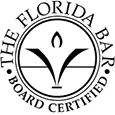Road Hazards: The Sobering Truth About Drinking and Driving Truck Drivers
The presence of drinking and driving truck drivers on our roads creates significant dangers for everyone. When a commercial truck operator chooses to drive under the influence of alcohol, the massive size and weight of their vehicle make any resulting incident potentially catastrophic. Seattle truck accident attorneys understand the devastating consequences of these crashes and can help victims navigate the legal aftermath.
Understanding the rules these professional drivers must follow, and the serious problem of impaired commercial vehicle operation, provides important context if you were involved in a crash with an impaired drunk driver.
Table of Contents
ToggleThe Scope of the Problem With Impaired Truck Operators
Accidents involving impaired truck operators pose a severe threat on our nation’s highways. A large commercial truck requires much more distance to stop and is far less maneuverable than a passenger car.
When a truck driver is impaired by alcohol, their judgment, reaction time, and coordination are diminished. This impairment makes operating an 80,000-pound vehicle incredibly hazardous.
The unique nature of commercial trucking means that a drinking and driving truck driver puts many lives in danger. Many factors contribute to the issue of truckers driving under the influence. Long hours, isolation, and pressure to meet deadlines may play a role for some individuals.
However, these factors do not excuse the decision to operate a commercial motor vehicle (CMV) while impaired. The potential for widespread harm from one such impaired commercial vehicle operator is immense.
Rules for Commercial Drivers and Alcohol
Strict regulations govern alcohol consumption for individuals operating commercial vehicles. These rules are much tougher than those for drivers of private cars. These federal and state laws aim to protect public safety due to the great potential for harm when a trucker drives impaired.
Federal Regulations for Truckers

The Federal Motor Carrier Safety Administration (FMCSA) sets clear rules for commercial driver’s license (CDL) holders regarding alcohol. CDL holders are subject to a blood alcohol concentration (BAC) limit of 0.04% when operating a CMV, half the limit for non-commercial drivers in most states.
Furthermore, a commercial driver is not permitted to consume alcohol within four hours of going on duty to operate a CMV. The FMCSA also has a zero-tolerance policy.
This policy means that a CDL holder who has any measurable amount of alcohol in their system (below 0.04%) while on duty, or operating a CMV, will receive an out-of-service order.
This order prohibits them from driving a CMV for 24 hours. The consequences escalate for violations, especially if a trucker drives under the influence and leads to an accident.
State-Specific Laws
In addition to federal rules, states like Washington and Florida have their own stringent laws concerning drinking and driving by truck drivers. These state laws often mirror federal standards, including specific penalties and administrative actions.
A CDL holder convicted of driving a CMV with a BAC of 0.04% or higher faces CDL disqualification for at least one year for a first offense. This disqualification extends to three years if the offense occurred while transporting hazardous materials.
A second conviction results in a lifetime CDL disqualification. Refusing an alcohol test also leads to disqualification. Penalties also apply if a truck driver receives a DUI while operating their personal vehicle.
A DUI conviction in a private car typically results in CDL suspension. These strict measures underscore the responsibility placed upon those who drive large trucks professionally and the risks associated with truckers driving under the influence.
Identifying an Impaired Commercial Vehicle Operator
Recognizing the signs of an impaired commercial vehicle operator helps other motorists stay safe and report dangerous behavior. While not always obvious, certain indicators may suggest a drinking and driving truck driver. Observing these signs may prevent a serious accident.
Erratic driving is a common signal. This includes:
- Wide Turns: A truck making unusually wide turns into other lanes might indicate an impaired operator.
- Lane Drifting: Weaving, straddling lane lines, or drifting into other lanes or the shoulder is a strong sign of impairment.
- Inconsistent Speeds: Speeding up and slowing down erratically, or driving significantly below the speed limit without cause, points to a potential problem.
Other behaviors, such as tailgating, sudden or unnecessary braking, or delayed reactions to traffic signals, also suggest impairment. If you see a trucker driving under the influence, maintain a safe distance and consider reporting it to authorities when it’s safe to do so.
Your action could avert a tragedy caused by a drinking and driving truck driver.
Responsible Parties After a Drunk Driving Truck Accident
When an accident occurs involving a drunk driving trucker, determining all responsible parties is a key part of the process. While the impaired truck operator bears direct responsibility for their actions, other entities also might be liable. These situations often involve complex layers of accountability.
Trucking Company Liability
The trucking company that employs the impaired commercial vehicle operator also might face liability. This accountability often stems from the company’s own negligence in its operations or hiring practices.
Several factors contribute to this potential liability:
- Negligent Hiring: A company might be liable for negligent hiring if it hired a driver with a known history of alcohol abuse or previous DUIs without proper investigation or consideration. Negligent retention occurs if a company keeps a driver employed despite learning about alcohol-related issues or observing warning signs of a drinking and driving truck driver.
- Poor Supervision: Inadequate supervision or a lack of robust alcohol and drug testing programs also constitutes negligence. Sometimes, company practices create an environment where substance abuse becomes more likely.
- Undue Pressure: Extreme pressure to meet unrealistic schedules or violate hours-of-service rules adds stress that might lead some drivers to misuse alcohol. If a company’s policies or demands contributed to a trucker driving under the influence, they share responsibility.
Other Potential Parties
Beyond the driver and the trucking company, other parties sometimes share responsibility for an accident caused by drinking and driving truck drivers. Identifying these additional parties requires a thorough look at all the circumstances surrounding the crash.
For example, if a bar or restaurant knowingly over-served alcohol to a visibly intoxicated truck driver who then caused an accident, that establishment might be liable under dram shop laws in certain jurisdictions.
Maintenance companies may bear some fault if a mechanical failure, unrelated to the driver’s impairment, contributed to the accident’s severity or occurrence, though this is less directly tied to the DUI aspect.
Properly investigating the actions of every party involved helps build a complete picture of accountability when an impaired truck operator causes harm.
How a Lawyer Helps You With Drinking and Driving Truck Drivers
If you or someone you loved were involved in an accident with a drunk truck driver, you have the right to seek compensation for your losses. A lawyer can advise you on your options and help you file a claim.
Investigating the Crash
An attorney directs a comprehensive investigation into the truck crash. This involves gathering official police reports and any witness statements recorded at the scene.
They work to secure crucial evidence from the commercial vehicle itself, such as data from the truck’s electronic logging device (ELD) or black box, which records speed, braking, and hours of service.
Maintenance records for the truck and trailer also offer insights. In some cases, accident reconstructionists are engaged to analyze the physical evidence and dynamics of the collision.
Identifying All Liable Parties
Your legal representative works to pinpoint every party whose negligence contributed to the accident involving the drinking and driving truck driver. This often extends beyond the truck operator to include the motor carrier.
They’ll investigate the trucking company’s hiring practices, driver supervision, and compliance with safety regulations. If the company allowed an unfit driver behind the wheel or pressured drivers into unsafe practices, they also may be liable.
Dealing With Insurance Companies
Trucking companies usually carry substantial insurance policies, and their insurers often have teams dedicated to minimizing payouts. A lawyer acts as your advocate, handling all communications and negotiations with these insurance companies.
They protect your interests from tactics insurance adjusters may use to devalue your claim from an incident with a drunk driving trucker. Their experience with these insurers is valuable in navigating the claims process and working towards a fair resolution.
Calculating Your Damages
An attorney helps to meticulously calculate all damages you incurred due to the accident with the drinking and driving truck driver, including current and future medical expenses related to your injuries.
Compensation also covers lost income from being unable to work and any diminished future earning capacity if your injuries have long-term effects. Your lawyer will assess non-economic damages, such as pain, suffering, emotional distress, and loss of enjoyment of life.
They account for property damage, like your vehicle, in their comprehensive calculation.
Navigating Complex Legal Procedures
The legal process for claims involving impaired truck operators can be intricate and subject to specific rules and deadlines. A lawyer manages all aspects of this process on your behalf. They file all necessary legal documents correctly and within applicable deadlines.
Your attorney represents you in all legal proceedings, working to build a strong case, whether that leads to a settlement negotiation or a trial if necessary.
FAQ for Drinking and Driving Truck Drivers
What Is the BAC Limit for Commercial Truck Drivers?
Federal law sets the blood alcohol concentration (BAC) limit at 0.04% for individuals operating a commercial motor vehicle (CMV), which is much stricter than the 0.08% limit for non-commercial drivers.
Additionally, CDL holders must not have any measurable amount of alcohol in their system while on duty or face an out-of-service order for 24 hours.
Can a Trucking Company Be Held Responsible for a Drunk Driver?
Yes, a trucking company is often held responsible if one of its drivers causes an accident while driving drunk. This can occur through doctrines like vicarious liability or direct negligence.
Examples of direct negligence include negligent hiring of a driver with a poor driving record or history of substance abuse, negligent retention of a problematic driver, or inadequate supervision and training related to alcohol policies.
What Evidence Is Helpful in Drinking and Driving Truck Driver Cases?
Several types of evidence are crucial in cases involving drinking and driving truck drivers, including police reports, breathalyzer or blood test results, and field sobriety test records.
Eyewitness testimonies, photographs and videos from the scene, and data from the truck’s event data recorder (black box) also provide valuable information.
Additionally, the truck driver’s logbooks, employment records, and the trucking company’s safety and training records can help your claim.
What Should I Do After an Accident With an Impaired Trucker?
Gather all available documentation, including medical reports, police reports, and any information exchanged at the scene. Compile the truck driver’s name, CDL number, insurance details, and trucking company name.
Document the accident aftermath with photos, including vehicle damage and any potential related evidence. Then, contact a lawyer promptly to discuss your case, understand your rights, and initiate the claims process.
How Long Do I Have To File a Claim for an Accident Caused by Drinking and Driving Truck Drivers?

The time limit to file a claim, known as the statute of limitations, varies by state. In Washington, you generally have three years from the date of the injury to file a personal injury lawsuit.
In Florida, the general period for negligence claims is two years from the date of the accident. Some exceptions exist, so contact a legal professional promptly to protect your right to seek compensation.
Securing Your Path Forward
When a commercial vehicle operator makes the dangerous choice to drive under the influence, the lives of innocent people are put at risk. Seeking legal guidance is the first step toward accountability.
If a drinking and driving truck driver injured you or a loved one, reach out to Boohoff Law, P.A. Our expert personal injury lawyers provide a strong voice for those harmed by negligence. Contact us at (813) 445-8161 for a free consultation to discuss your situation.
Free Consultation
We Are Here For You 24/7
Reviews
– Elissa M.
“Really pleased with Boohoff Law! Received immediate responses when I had any questions. Treated amazingly by all staff … made this process a true breeze!”
– Caitlyn M.
– Brandy K.
Related Posts
I Was Partially At-Fault in a Rear-End Crash. Can I Still Get Compensation in Florida?
I Was a Passenger in an Uber Accident. What Are My Rights?
What Damages Can I Recover After a Jackknife Truck Accident?
Recovery is personal.
We’re here for you.
We’re close by. And if you can’t make it to us, we’ll meet you where you need us, at home or in the hospital.
You're better off with Boohoff.











The information on this website is for general information purposes only. Nothing on this site should be taken as legal advice for any individual case or situation. This information is not intended to create, and receipt or viewing does not constitute, an attorney-client relationship.
available 24/7
(877) 999-9999
